Digital 52 3️⃣6️⃣ - Adapting to new members, growing within the same building, promoting the local design culture through education: the story of Fikra Campus.

Today's story will take you to Sharjah, the third-largest city in the United Arab Emirates. What's there? Fikra Campus, a multipurpose space that supports local entrepreneurs and attracts global talents.
Community Curation - Covid19 Adaptation - Multipurpose Spaces
You can read the story of Fikra Campus on page 75 of “Around The World in 250 Coworking Spaces”.
Coworking spaces are unique in the sense that the people they attract make them what they are. As this is the 36th story you are receiving since we started Digital 52, you might remember how certain coworking spaces target specific professionals, such as parents, makers, or even chefs. Today's story will highlight a different take, one that may not be as 'profession-focused' but certainly exemplifies the hidden power of a coworking space in supporting its members. As you are about to discover, when Fikra Campus started, it was actually a design studio, not a coworking space. Then, what prompted its founder to convert the design studio into a multipurpose space that plays a key role today in attracting global talent and businesses in Sharjah? The answer is just a few scrolls away!
➡️ A little refresher
Who’s behind the featured space?
Meet Salem Al-Qassimi, the Founder of Fikra Campus.
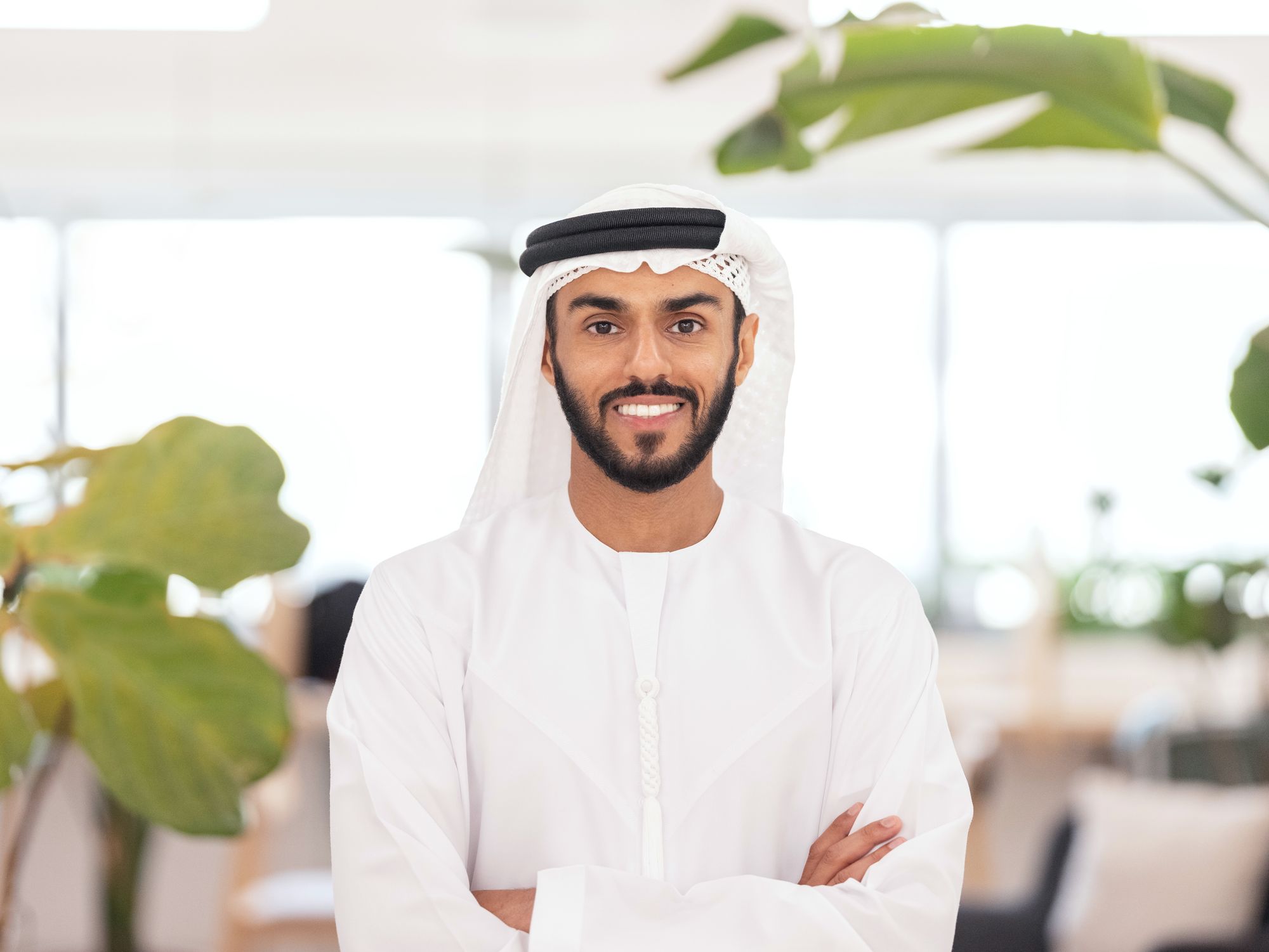
Salem founded Fikra Design Studio in 2006, an award-winning multidisciplinary design studio, and launched Fikra Campus in 2017 as a design-led communal space created to connect and enable creatives and entrepreneurs which comprises a coworking space, a café, a gallery, a library, and an active urban rooftop.
When asked how the transition between a design studio and a coworking space happened, Salem told us: “It was a natural progression for Fikra. Over the years, Fikra took on several roles. And one of the most interesting things that happened is that a lot of friends and family members who lived in Sharjah and worked in Dubai, or people who worked in Dubai and were visiting Sharjah, somehow liked to stop by and work from our Studio. There then was an opportunity when our neighbors decided to move out of the space. We spoke to the landlord who then rented us the entire 2nd floor which then became Fikra Campus in 2017.”
➡️ Key Figures
- Opening year: 2017 for the Fikra Campus
- Size when they started: Around 290 sqm
- Size today: 2 new addition to the existing space: a café and a rooftop!
➡️ A little tour around Fikra Campus
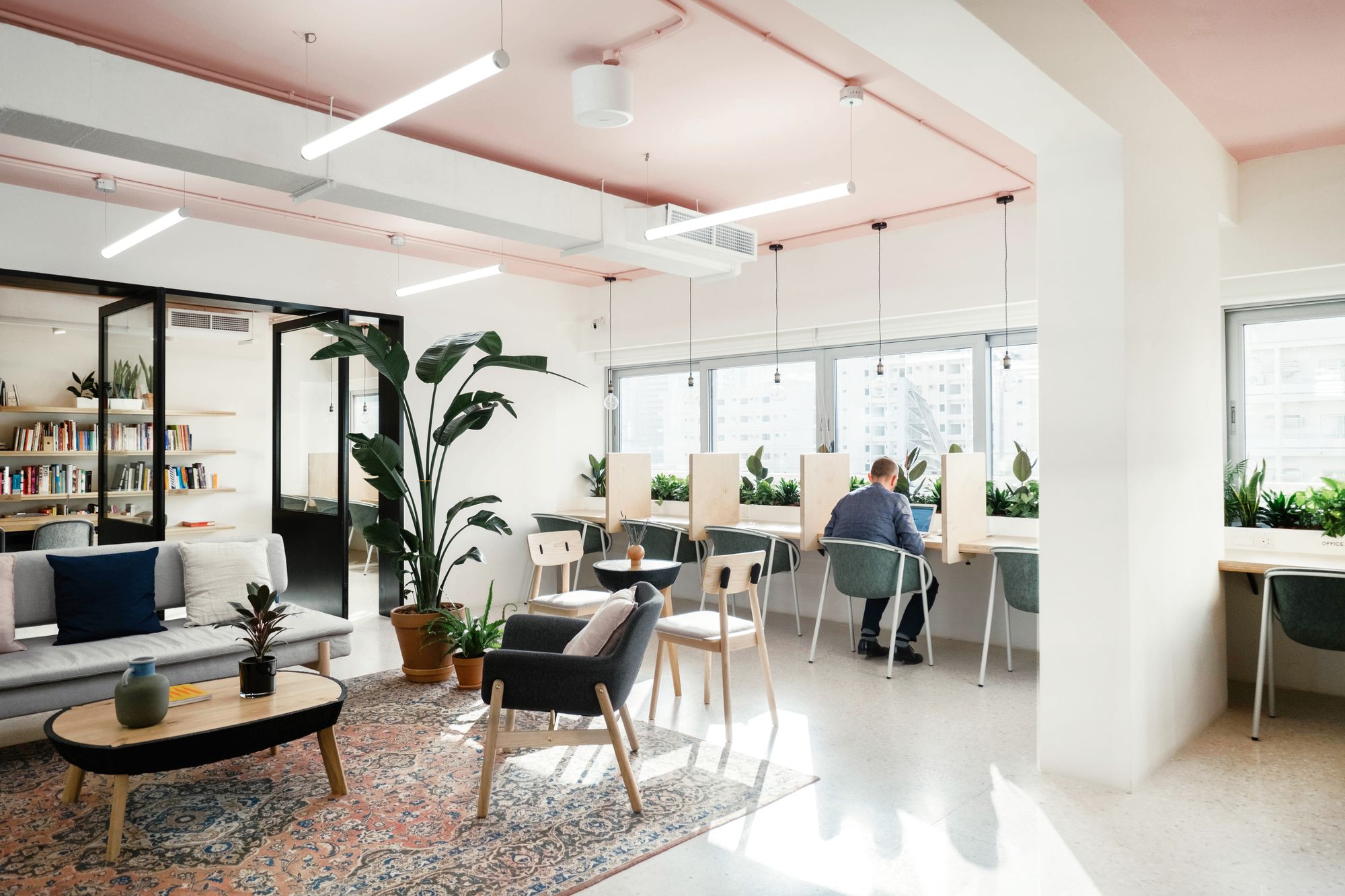
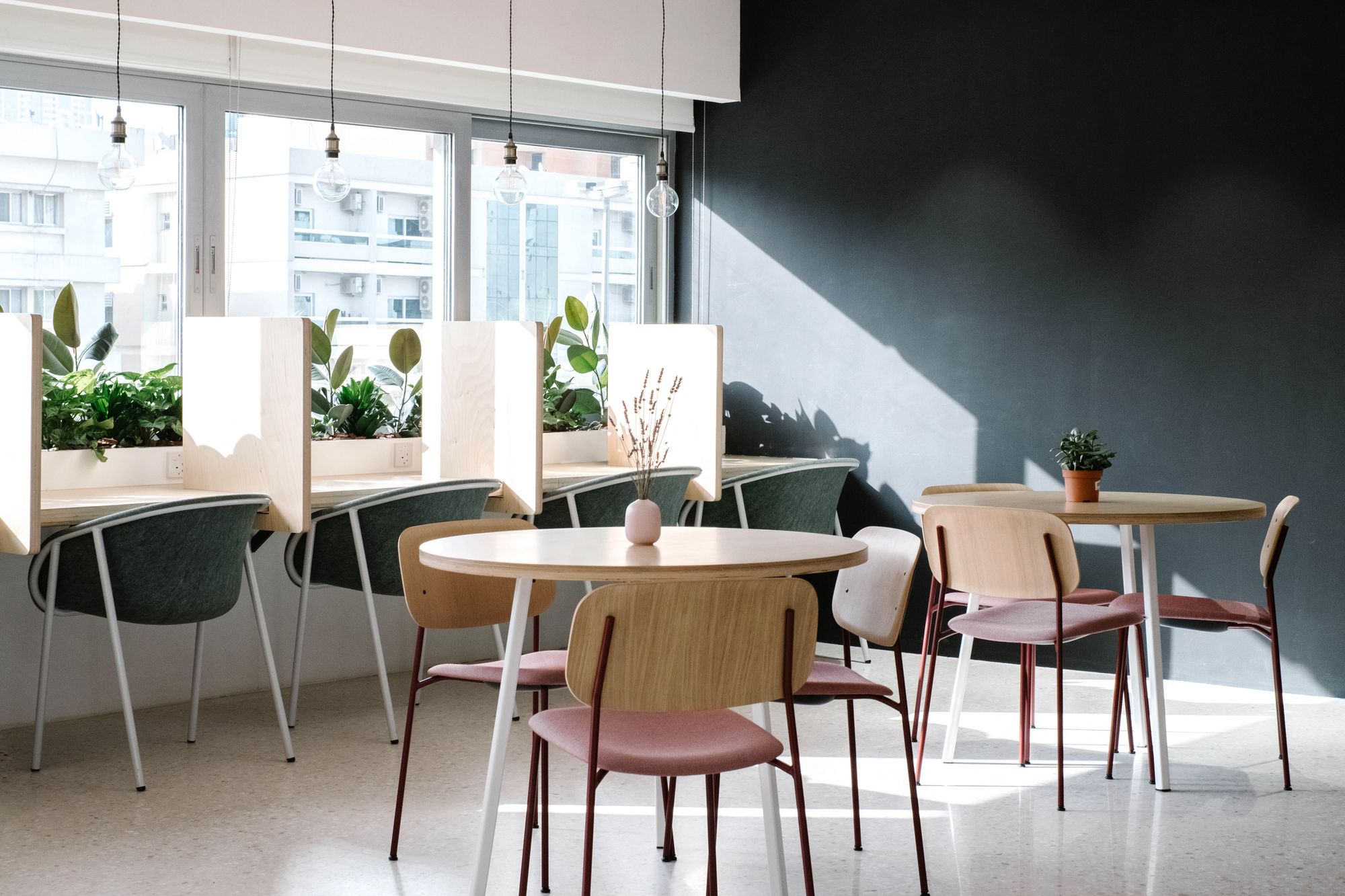
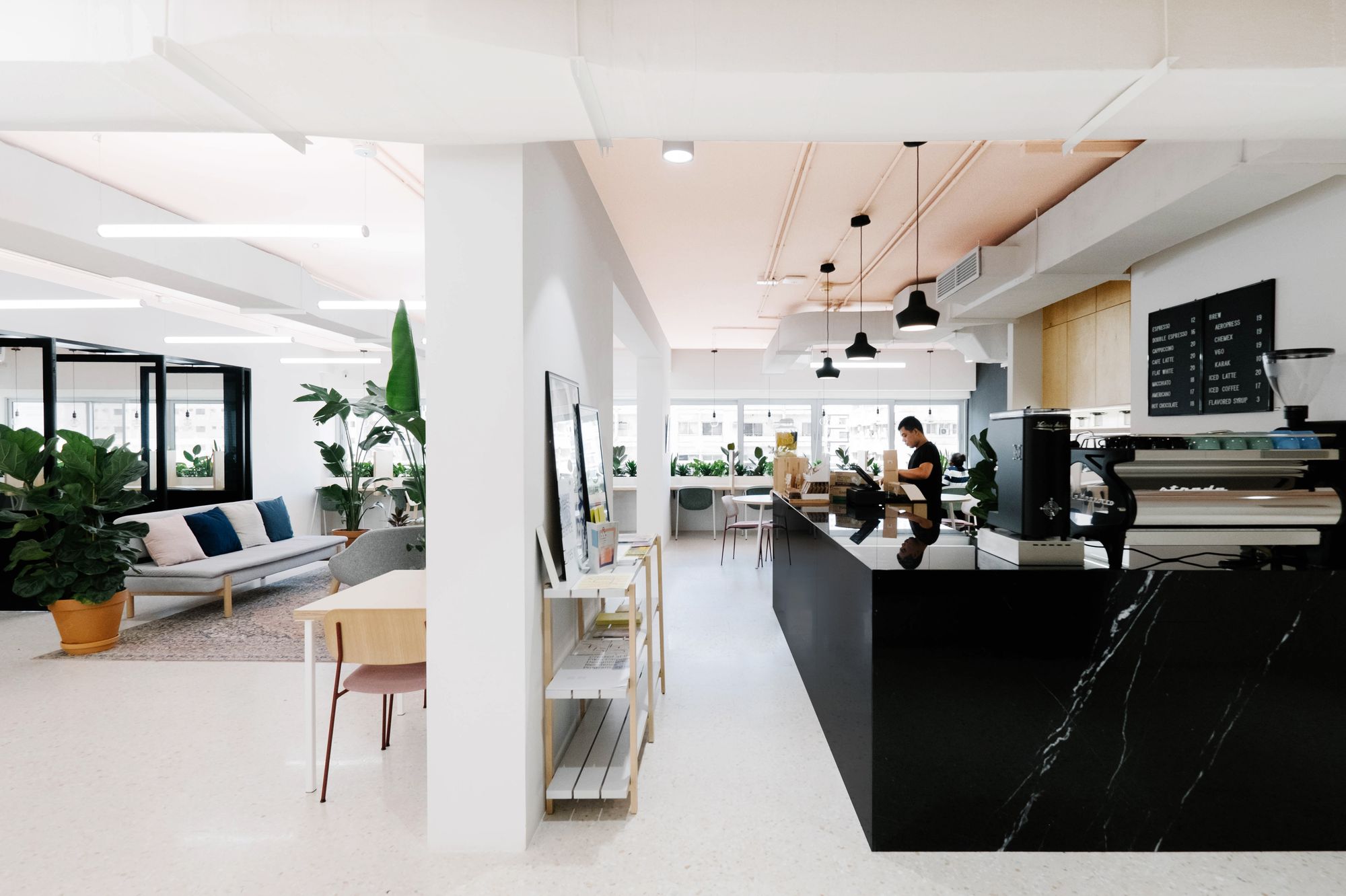
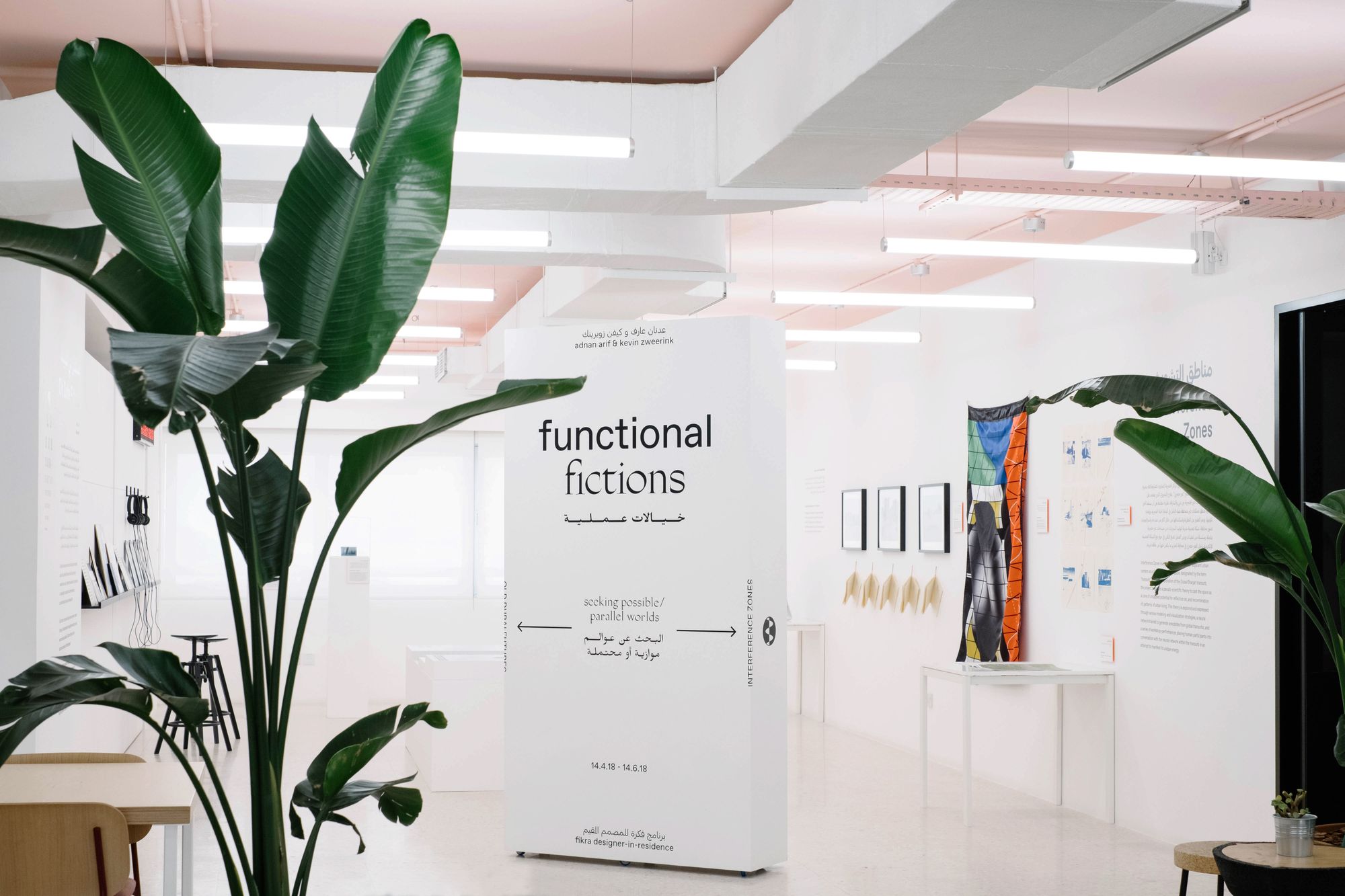
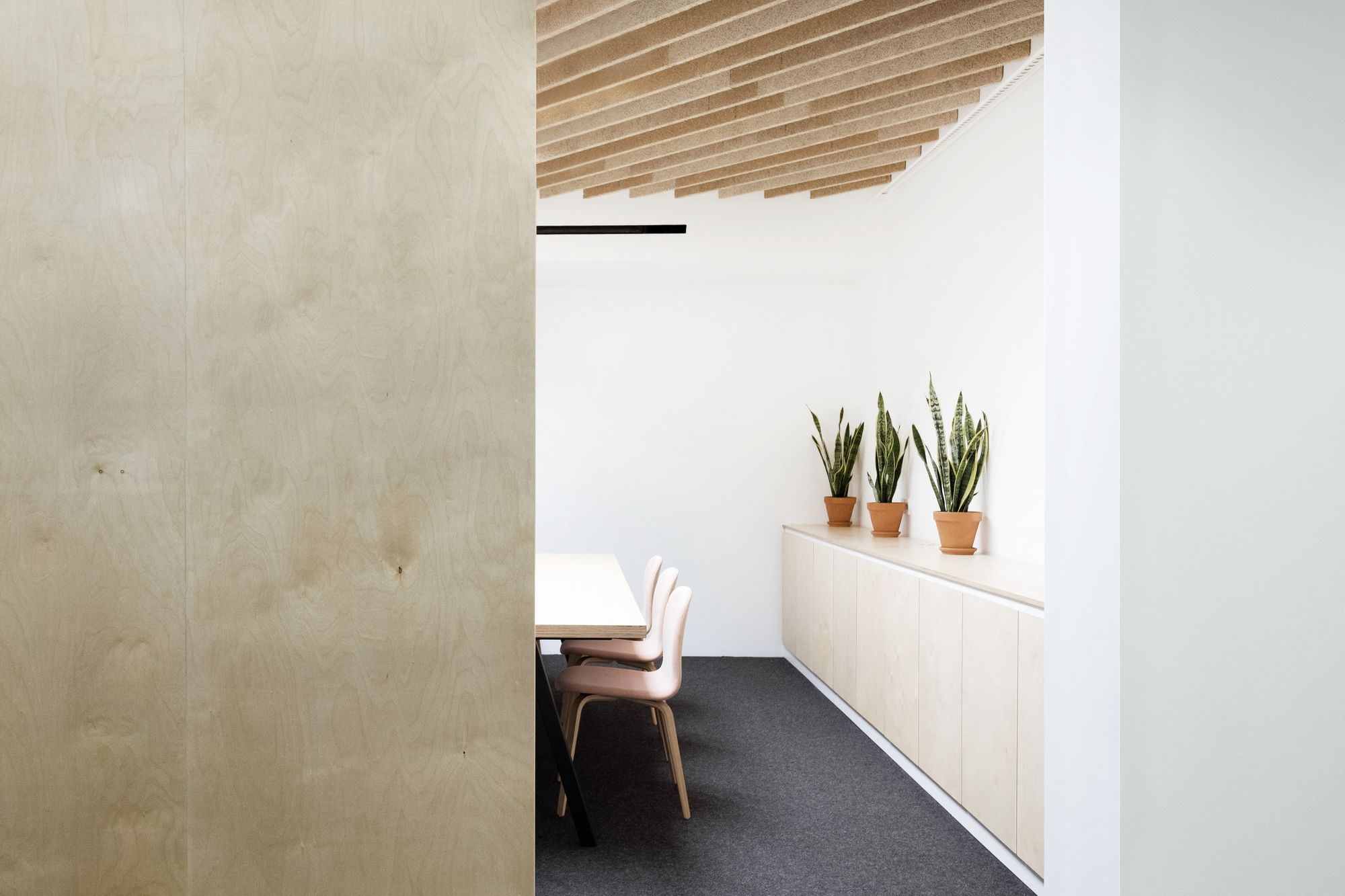
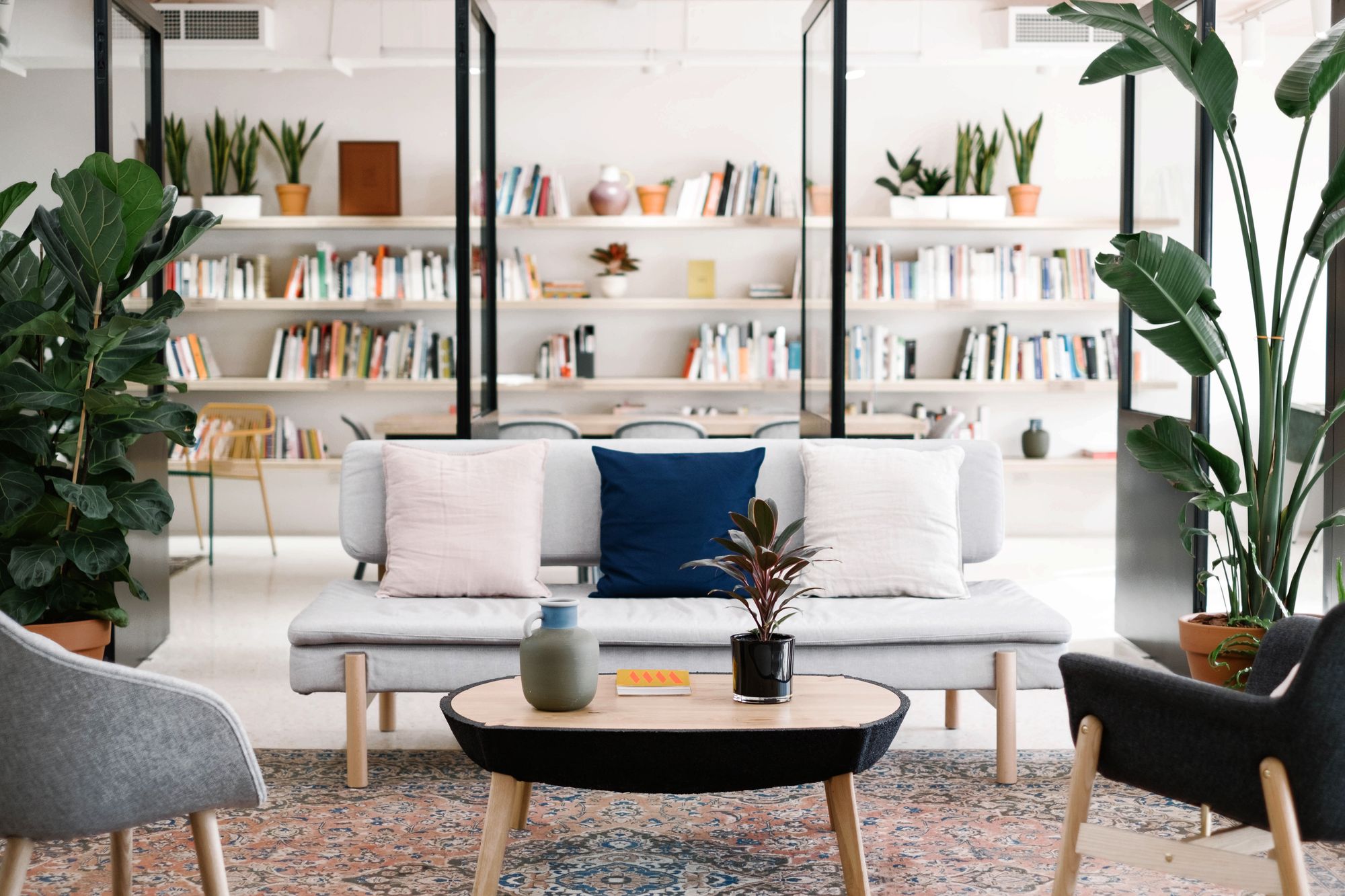
➡️ Behind-the-scenes
Things you didn't read in aw250cs.
Fikra stands for “Idea” in Arabic, and is better translated as the Eureka moment. Having a solid idea is the most crucial element in any task or initiative, which is why we decided to continue to call the space Fikra Campus. The notion of campus came about from the idea that Fikra as a design studio and group, always prioritized education, and we wanted that to be reflected in the name.
In the early days of Fikra Campus, Salem admits that finding the right ways to engage with its audience was a challenge. “We had a broader audience base through our design studio, and it took almost an entire year to be able to communicate with the right audience for our coworking space.”
"What worked in our favor was that our activities at Fikra brought people together. The landlord understood the value of creating a sense of community, and that's why they were supportive."
Salem Al-Qassimi, Founder of Fikra Campus
➡️ Fikra Campus Today
What is the current status of Fikra Campus? As you are about to discover, it has undergone significant developments, which Salem and his team wholeheartedly embrace to shape a brighter future for their space and brand. While the pandemic was a challenging time, life at Fikra Campus today is a representation of what it stands for - full of life, dynamic, and constantly fostering greater value for their extended community.
💫 New Members, New Opportunities.
The pandemic has brought a wind of change to Fikra Campus, both in terms of space and in terms of members. From professionals from the Creative industry, Fikra Campus witnesses a new interest in their space from new communities, like the web3 one. Keep ready to find out more.
The pandemic has allowed Fikra Campus to develop the physical space in new ways, adding a café and a rooftop to the plurality of the space. How did it all happen? You are about to find out!
💬 I’d like to start by asking you: what’s new at Fikra Campus since September 2021?
There has been one significant change from a physical standpoint. Previously, at the Fikra campus, we had a coffee shop on the same floor, and we still have it, but the building owners requested us to relocate it to a more accessible area on the ground floor, right in front of the window. It is now part of a shared space managed by a property management company. Upon entering the coffee shop, you'll find a spacious area for the cafe downstairs. We have opened it and will soon start serving delightful, healthy bites alongside our amazing coffee.
Another noteworthy change is the composition of our members. Since the onset of Covid, people have been working remotely to a greater extent. Therefore, the members we had at the Fikra campus before Covid differ considerably from the individuals we have now. Although we still have some members with similar disciplines, there are noticeable differences in the way they work. For example, we, as the Fikra team, have collectively agreed to work from the office. That being said, we have a full-time designer based in Egypt who doesn't visit frequently, but when she does, it enhances the ambiance of the space.
However, what I find particularly interesting is that people's work patterns have evolved. Before Covid, individuals were resolute about having their own dedicated spaces, even within coworking spaces where desk spaces could be rented. However, since Covid, I have observed that people enjoy shifting their workspaces more frequently, which is intriguing. Despite renting a specific desk, I often see them working from different areas and then returning to their designated spaces. This newfound flexibility wasn't as prevalent before Covid.
Furthermore, the individuals we currently attract are often associated with crypto, artificial intelligence, and metaverse fields. Some people come in to showcase their remarkable projects, which adds an element of excitement. It's truly fascinating to witness this phenomenon unfolding.
That pushed us to make adjustments to the way we operate our business. In 2021, I noticed a substantial increase in the number of people returning and feeling more at ease in our spaces. Initially, I believed that if I opened the coffee shop downstairs, people would prefer working there over the coworking space. However, it turns out that hardly anyone works in the coffee shop. Instead, most people choose to work in the coworking space, which is rather intriguing. I'm not sure why this is the case; perhaps it's because we have more plants here compared to downstairs, creating a more pleasant atmosphere.
💬 Does it imply that you had to make some adjustments to the interior design of the space?
Our spaces are highly modular, especially the section near the window where the desks are located. We have a flexible arrangement across all our space. We have a gallery space right in front of us, which is sometimes empty and sometimes set up with desk spaces. I often see people walking over to that area and working from there. The beauty of our modular setup is that even the walls can be moved, allowing for the rearrangement of the entire space. It's fascinating to witness how people utilize that space, making it their own, but eventually returning to their designated stations when they need to concentrate.
💬 Fikra Campus is actually a multi-purpose space. Why did you decide to bring under one roof a coworking space, a design studio, a gallery, a library, and a printing facility?
Initially, to be honest, it was a selfish decision because I desired to have a workspace that encompassed everything. This idea began to take shape around 2013 when my wife Maryam, who is also a partner at Fikra, and I started discussing it. However, back then, it was a completely different concept. It revolved around the imagination of Fikra campus as a city. We pondered what Fikra City would look like.
We delved into thoughts about the little things that could bring people together, inspire them, and create serendipitous encounters. The idea of serendipity kept recurring. We contemplated how we could foster serendipity within our own work environment. Eventually, this concept started manifesting in the Fikra space itself.
Originally, this space used to be our previous office, but it was divided into multiple offices, including a consulting firm situated adjacent to us. At that time, Fikra occupied a smaller area, and we had many architect and designer friends who would drop by our studio as it was conveniently located on the way to Dubai. In 2016 the neighboring company closed down, resulting in the entire space being vacant. I approached the landlord and proposed the idea of transforming the entire floor into a similar kind of space, to which they agreed.
During this process, one of the most frustrating aspects for me was the difficulty faced by small businesses when they needed to operate. There were numerous challenges, such as financial constraints and navigating the complex paperwork required. To address this issue, we devised a solution. Instead of renting an entire office, we obtained a business center license. This enabled us to assist entrepreneurs, small businesses, and designers in obtaining their own trade licenses by simply renting a designated desk. By doing this, we made it more affordable, as the entrepreneurs only had to pay for the desk space, significantly reducing their expenses.
We facilitated the necessary agreements and collaborated with the landlord to ensure a seamless process. The designers or entrepreneurs were not required to pay traditional rent. They solely rented the desk space, making it a much more cost-effective option. Additionally, we have a dedicated public relations officer who is well-versed in assisting with the establishment of businesses. We connected entrepreneurs with this officer, who ensured that all the required procedures were completed within a couple of days. The UAE is a progressive country, and particularly after the impact of Covid-19, many processes have transitioned online, making the license acquisition process faster and more efficient.
Thus, we started providing this service, which proved to be immensely helpful for entrepreneurs and freelancers. It allowed them to operate their businesses, obtain a trade license, have a desk space, and acquire an official address for their mail and a telephone number. These seemingly trivial aspects are crucial and often taken for granted, but they are essential for business operations. Our services cater to these needs, and we were able to facilitate them. Simultaneously, I had a personal need for coffee, considering my lactose intolerance. I desired a variety of milk options, including camel milk. Hence, we incorporated a café that could serve our members and cater to the events we host, such as the Residence Programs. Additionally, individuals who rent out our space for their own events could also benefit from the café services.
Furthermore, we had an extensive collection of books, which my wife and I wanted to share with everyone. Thus, we created a library space and digitized the book titles, making them searchable online. However, the physical books are still available in our library for people to come and check.
💬 Could you please explain the user journey within Fikra campus? How do people navigate through the space and discover the various services available?
The entire space at Fikra campus is an open space, allowing visitors to see everything as soon as they enter. Most people who come here are already aware of Fikra campus as a coworking space because they discover it online. They actually primarily come for the coworking areas, events, or other offerings, rather than solely for the cafe.
Additionally, I forgot to mention another aspect. While setting up Fikra campus, I spoke to the landlord about utilizing the rooftop as a public space, especially during the beautiful winter weather. They agreed, so we transformed it into a lovely area with lights, plants, and other decorations. Currently, it's too hot outside as the temperatures reach nearly 50 degrees Celsius. However, during the winter, it becomes a stunning space for events. It also provides an alternative location for people to work upstairs and then return downstairs and adds to the overall experience we offer.
💬 I'm starting to understand through our conversation that you have a very supportive landlord. Was the relationship always like that? Did they understand what was coworking in the first place?
No, they didn't initially understand the concept of coworking space. I believe it was more because we had been tenants in this building for a long time. We've been tenants since 2000, and this is our second office space. Our design studio opened in 2006, and we moved to this building in 2009. So, we have been here for a few years.
We have been responsible tenants, and I have a sociable nature, so I got to know other businesses in the building. Many of these businesses would approach us for design work and seek our services. This helped us build contacts and relationships within the building.
Additionally, it's worth mentioning that the landlord is also a part of our family, which makes the relationship a bit easier. However, it's important to note that decisions are not solely made based on the family connection. Other individuals are involved in the decision-making process, and the entire building has other tenants as well.
What worked in our favor was that our activities at Fikra brought people together, which I believe is crucial. The landlord understood the value of creating a sense of community, and that's why they were supportive.
For example, when we proposed using the rooftop as a designated space for smoking or enjoying the weather, they were open to the idea. The rooftop provides a beautiful and convenient area for these activities. Their response was positive, as long as we were willing to cover the expenses associated with it. We agreed to take responsibility for the costs, ensuring it was not just an inexpensive solution but also a well-maintained one.
💬 How have you raised awareness about Fikra Campus over the years?
I believe the primary strategy for attracting people to Fikra campus is through word of mouth. Building relationships with individuals and providing them with unforgettable experiences is crucial. We achieve this by organizing events, collaborations, and talks. These activities allow us to engage with diverse groups of people and expand our reach.
However, we don't typically use traditional methods like advertisements, except for specific events such as the Fikra In Residence program. For instance, when we announce an open call for three designers to work at Fikra and receive a stipend to create artwork for three months and exhibit them at our space, we advertise to ensure maximum participation.
Moreover, I believe coworking spaces in the area lack inspiration and often resemble dull cubicles. In contrast, our aim was to create an inspiring environment with abundant natural light, lush plants, and exceptional coffee. These elements tend to attract individuals who seek a more stimulating workspace. After all, nobody wants to work in a monotonous cubicle all the time.
💬 You have a strong educational stance, can you talk to us about it? How do you build the programming?
Yes, indeed.
With our design studio, we specialize in the concept of bilingualism, incorporating both Arabic and English in our work, whether it be culture or script. This focus became crucial for us. Additionally, I used to teach design at the local university, and one of the most frustrating aspects was the lack of emphasis on Arabic graphic design in the borrowed Western curricula of many graphic design programs here.
As a result, students often find inspiration solely in Western graphic design, lacking relevant references from our region. Therefore, one of my goals was to facilitate the creation of content that specifically relates to graphic design and other disciplines, ensuring its relevance to our culture. We aim to share our unique narrative and cultural identity with the world. Our culture currently occupies a distinct hybrid space, assimilating aspects from both Eastern and Western cultures while maintaining our own identity.
This is why our education programs began, starting with the Designer Residence program. We wanted to enable designers, even those from outside our region, to generate work that is relevant to this part of the world. The talks we organize also revolve around topics that are significant to our culture and context.
In 2018, we organized a significant event, a graphic design biennial that took place not at Fikra campus itself, but where Fikra campus served as a satellite space. The event aimed to generate content that is pertinent to our region, with the goal of creating more references related to this part of the world and showcasing our own narrative. It was supported by the Ministry of Graphic Design here.
Fikra campus has become the platform that fosters such discussions, content creation, and more. Although currently, we are shifting our focus towards some commercial projects, we intend to resume our efforts in generating educational programs once these projects are completed.
➡️ Reflections on Building Fikra Campus
💬 If you could do one thing differently in the journey of Fikra Campus what would it be?
That's an interesting question.
Personally, I don't believe in doing things differently in hindsight. I believe in learning from our journey and using those lessons to improve future endeavors. The decisions we make at a specific moment are based on the available information and circumstances, making it impossible to have done things differently at that time. We learn from these experiences, taking into account the passage of time.
For example, if I were to open Fikra campus today, it would be significantly different from how I opened it before the COVID-19 pandemic. The unforeseeable nature of events like COVID-19 means that our approach would naturally be adapted to the current situation.
Rather than focusing on doing things differently in the past, I prefer to look toward the future and consider what I would do differently or what I miss. For instance, I miss the abundance of educational programs we used to have before COVID-19. We were once quite busy with numerous programs, and while I may not aim for the same level of activity as before, I would certainly strive to have more programs than what we currently offer.
As I reflect on this question, I realize that I am already moving in that direction. I have several planned initiatives and events in the pipeline. Therefore, while there may be aspects that I would approach differently, it's difficult to pinpoint exactly what those would be at this moment.
💬 What has been your biggest learning out of bringing to life AND growing Fikra Campus?
Well, I can't say with absolute certainty, but from my perspective, I believe that while creating business plans and undertaking various tasks are valuable, they should never be blindly trusted.
The reality is that they are often inaccurate and subject to change. It's crucial to adapt to the present moment and remain highly flexible. In the case of Fikra campus, around 90% of the initial business plan turned out to be inaccurate, not because the study itself was flawed, but because circumstances led us to shape the business in a different way.
For instance, my original vision of Fikra campus relied on sponsorship from a specific entity to fund the space and its programming. However, that didn't come to fruition. Instead, we formed partnerships for different programs, and the coworking space at Fikra campus became self-sustaining. These developments occurred organically through conversations and collaborations with various individuals. Therefore, I believe it's important to have a business plan as a repository for ideas, allowing it to evolve and completely change. After outlining the initial plan, I prefer to leave it behind and move forward, trusting my instincts and embracing the present circumstances.
In terms of personal philosophy, I strongly believe in prioritizing my own happiness, as well as the happiness of my staff and family. If I'm not happy, it's challenging for those around me to be happy as well. I live by a motto shared with me by my cousin: “If it's not a f*** yes, then it's a no.” This means that if there's anything I want to pursue, whether related to Fikra campus or my work, it must evoke a strong sense of enthusiasm. Otherwise, it's a definite no. By prioritizing my happiness, I am better equipped to bring joy to those around me. Consequently, I have learned to be more discerning in my choices, rather than being a pushover who experiments with everything.
Nowadays, I prioritize spending quality time with my daughter rather than dedicating hours to projects that don't ignite my excitement. If I'm truly passionate about something, I will eagerly pursue it. This principle also extends to our client projects. When assessing graphic design inquiries, my team and I carefully consider whether we are genuinely interested and excited about the project. If it's a no or a maybe, then it's a definite no. However, if it's a resounding yes, we wholeheartedly commit to it.
I have evolved to prioritize happiness and enthusiasm in decision-making, both for myself and those around me. This principle guides our choices, allowing us to dedicate our time and energy to projects and endeavors that genuinely excite us.
💬 What would be your best advice to someone thinking about opening a coworking space?
Ask yourself why you want to open a coworking space.
I believe coworking spaces are amazing and we should have more of them. But figuring out your why is crucial, to begin with. For instance, if I were to open Fikra campus following the conventional approach of other coworking spaces with cubicles, I don't believe it would be successful or bring anything new to the table. The reason Fikra campus operates differently is that it identified specific problems within our coworking community, such as licensing issues and the need for support in starting up businesses. That's why we started the coworking space.
Therefore, when someone expresses interest in starting a coworking space, I would inquire: Why are you starting this coworking space? What unique aspects would make people want to join and work there, beyond it being a typical coworking space or a place to meet interesting individuals? While the location is undoubtedly important, I consider it a given, and there are other obvious factors as well. What truly matters is having a core purpose that addresses a specific issue you genuinely believe in. With Fikra campus, everything revolves around the idea of education, offering educational programs, creating relevant content, and fostering entrepreneurship in this region. These are values I strongly believe in, which led to the establishment of Fikra campus. Therefore, it is essential to identify that core question and build something based on a belief system rather than solely relying on location, a fun atmosphere, or meeting interesting people. These are all important aspects, but finding a purpose you truly believe in is the key.
💬 If you could chat with coworking space now, what would you like to ask them?

💬 And if you could chat with members of coworking space?
I'm interested in comprehending people's goals, their life missions, and how I can contribute to making those aspirations a reality. It's not solely about me, but about how I, as another individual, can I be of assistance. There's a mutual aspect to it, a give-and-take relationship. If I genuinely believe in what you're doing and perceive it as a noble cause, it becomes important for me to be involved. Maybe I can pose a different question to coworking members, such as what inspires them. Although it might be a broad question, to begin with, it can lead to intriguing conversations where I can delve deeper into their core values and the underlying purpose that drives their lives.
💬 Last but not least, where would you want to bring Fikra Campus next?
Honestly, I'm unsure. Throughout my life, I've preferred to keep things uncertain. Planning too far ahead tends to overwhelm me, especially considering how frequently circumstances change. I find myself investing significant time contemplating possibilities that may never come to fruition. As a result, I tend to share different ideas or concepts that catch my interest at the moment. One such idea is pondering whether Fikra campus could exist within the Metaverse.
Imagine a coworking space in the Metaverse—how would it look? How could it facilitate the integration of physical and digital realms? While I firmly believe that coworking spaces should primarily exist in physical spaces, as they offer unique experiences and opportunities, I'm intrigued by the notion of co-existing within the Metaverse. It's a question that reflects my curiosity about the future and potential directions for our campus. However, at present, I believe that Fikra campus thrives in its current form. The ongoing transformations are subtle yet fascinating.
Interestingly, my growing interest in gaming, which intensified during the pandemic, has started to influence my work at Fikra campus. I've become more involved in gaming as a competitive player, and that passion has begun to manifest in the events we organize. We'll be incorporating more competitive gaming and potentially exploring collaborations with gamers. It's an exciting direction to consider, but only time will reveal where it leads us.
Curious to learn more about Fikra Campus? Join us on Discord and let's discuss their story!
.
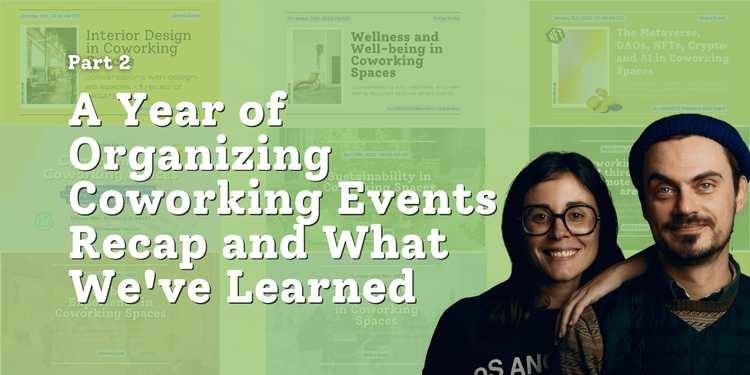




Member discussion